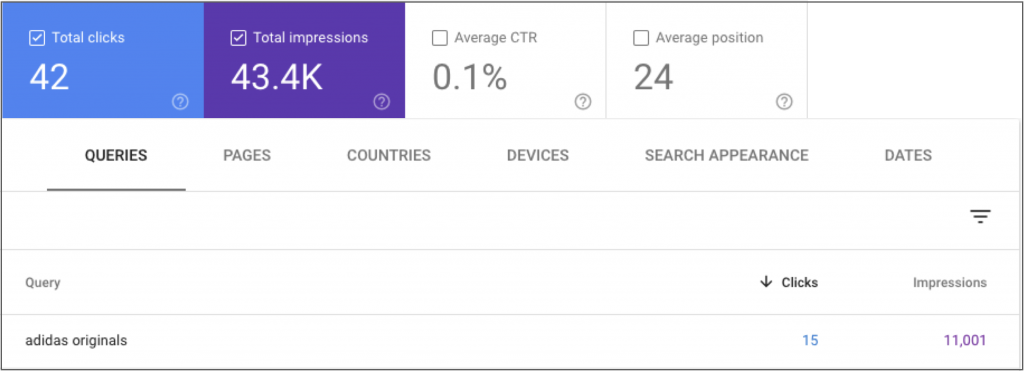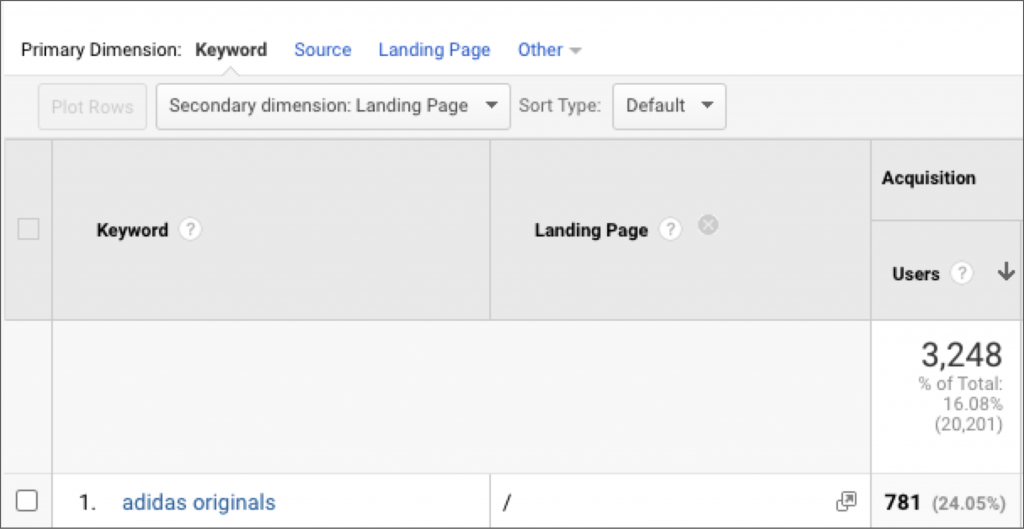Keyword targeted traffic can improve overall SEO by integrating keywords relevant to your product or service in website and ad copy to improve visibility in search engines.
This requires comprehensive keyword research to determine which keywords your business should be targeting.
What are targeted keywords?
Targeted keywords are the phrases that your target audience and visitors use in search engines when they are searching for a solution or information related to your business. Targeted keywords are usually phrases, not individual words.
Targeting keywords lead to more long-term and often short-term organic search traffic for your website.
Why should I use targeted keywords?
An essential part of the SEO process is using keywords: the words and phrases that describe what your page is about.
Google uses this information to determine which content is relevant to a particular search query, and how the page should rank for a search term. That’s what gives a web page its search ranking.
Googlebot, the web crawler software used by Google, collects documents from the web to build a searchable index for the Google Search engine.
Strategy to increase keyword targeted traffic
Once you completed keyword research and have a list of keywords, you can begin to create a keyword strategy.
A strategy to increase keyword targeted traffic needs to start with scanning the Serps.
Once you have an idea of the level of competition for each keyword, you can decide if you have any chance to ranking. If websites with domain authority of above 70 holds the top six or seven places, it’s probably not worth competing for this keywords.
In this case it is better to focus on long-tail keywords, where there is less competition to rank.
The first position on Google gets you on average, 30% more traffic than the second position.
The second position gets = 21.47% more than the third position.
The Top 10+ get less than 2.43%
Here are some Okrs to track:
Objective 1: Improve Serp ranking for primary focus keyword
Key results:
- Improvement in Google Search Console average position for the keyword
- Clicks improve by 10%
- Impressions improve by 10%
Objective 2: Improve overall average Serp rank for all other keywords
Key results:
- Improvement in Google Search Console average position for all keywords excluding the primary focus keyword
- Clicks improve by 10%
- Impressions improve by 10%
You can then compare the performance of targeted keywords versus non targeted keywords.
Objective 3: Improve blog content quality
Key results:
- 25% increase in blog subscribers
- 20% increase in time spent on page
- 10% increase in blog content shares on average
Objective 4: Increase organic conversions
Key results:
- 10% increase in conversions for focus keyword
- 2% increase in conversion rates for focus keyword
What are the best keywords to use?
When choosing the best keywords to use, aim for a mix of the following:
- Head or short-tail keywords are usually just one word and have a high search volume
- Body keywords are 2 to 3 word phrases with a good search volume, not high, not low
- Long-tail keywords consist of four or more words strung together with a low search volume. These account for the bulk of web traffic
How do I choose the best keywords?
You can select the best keywords in six steps:
- Start with keyword research
- Understand search intent
- Plan the buyer’s journey
- Assess and evaluate the Serp competition
- Choose the right content format for your keyword
- Map each keyword to a specific page on your website
How many keywords should I target?
Each page on your website including blog posts should target one focus keyword.
Take note of what keywords you have used in the past, to avoid ranking cannibalism.
It is usually the case in the natural evolution of a page that related keywords will be used. This is not a problem and gives Google more understanding about the intent of your keywords.
How do I track keyword rankings?
You can get a rough idea of average position per search query on Google Search Console.

However, there is a difference between how Google tracks searches and how web analytics tools record searches.
The main difference is how they sample the data.
In brief, when Google considers two similar queries to represent one search it doesn’t record the second search, even if it’s for a slightly different search term.
This fundamental difference is why thousands of your keywords don’t show up on GSC and why you are not able to track keyword rankings with precision.
I wrote about the key differences between GSC and Keyword Hero here.
How do I target keywords near me?
By using the terms ‘close to me’ ‘in my area’ or ‘keyword (city / place)’ or ‘keyword in (city / place)’.
Google will understand that you want to target keywords nearby. Scan the Serps for the local directories that target and rank well for ‘near me’ terms.
How do I use keywords effectively?
First, use your focus keyword in the first paragraph. Next, use that keyword in the body content and snippet. The best practice is to include latent semantic indexing (LSI) keywords rather than the exact keyword every time. Remember that keyword density is no longer a ranking factor.
How to choose the right pages for keyword targeting?
This requires the free version of Google Analytics.
Go to Acquisition | Overview | Organic Search.
Choose Landing Page as your secondary dimension.

You can immediately see what your most popular pages are.
A bonus, with Keyword Hero installed, is you can see which keywords session are linked to each landing page.
This makes it much easier to ensure that the keywords are optimized for the appropriate page on your website. You can also track keyword conversions.


